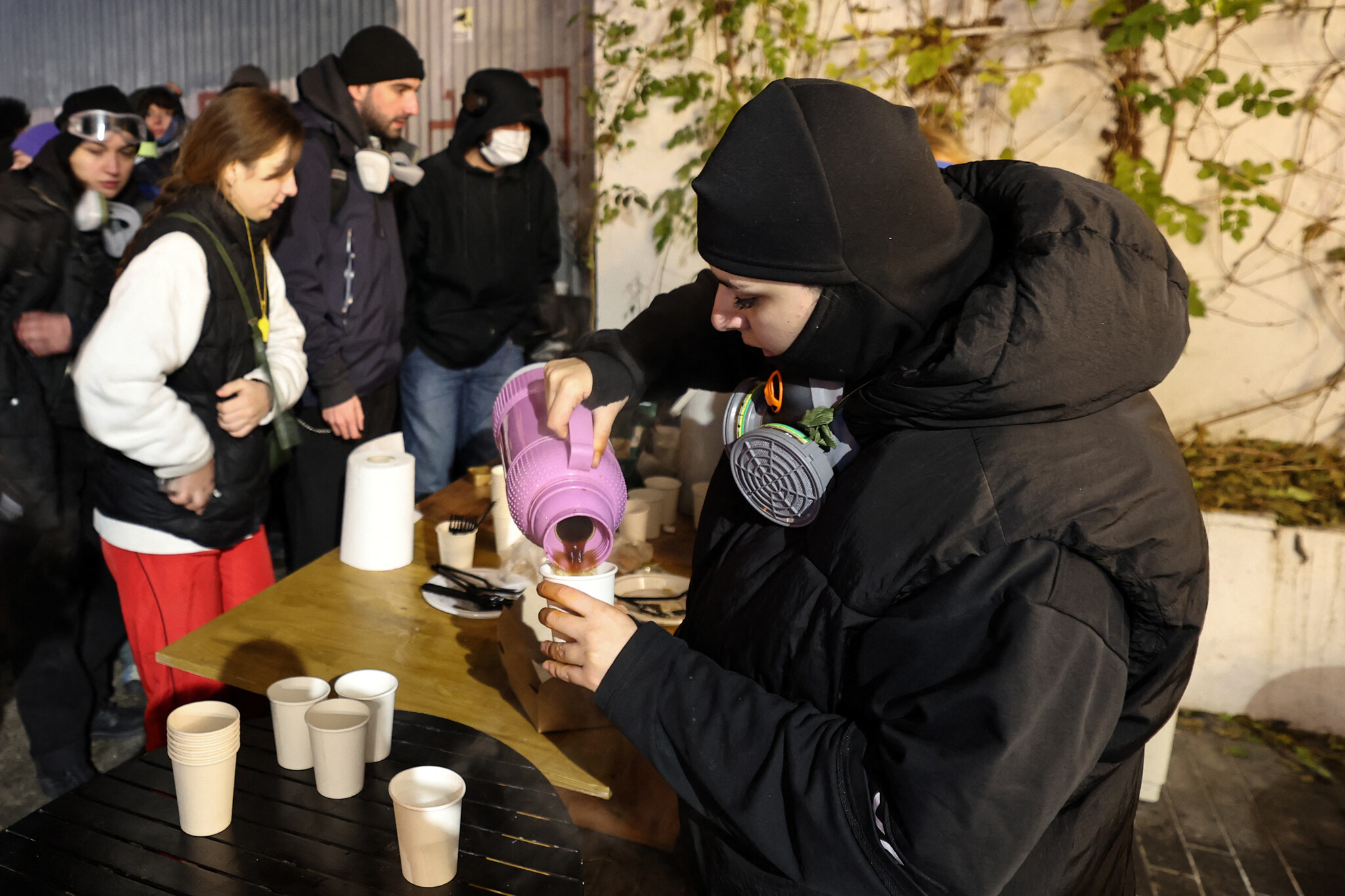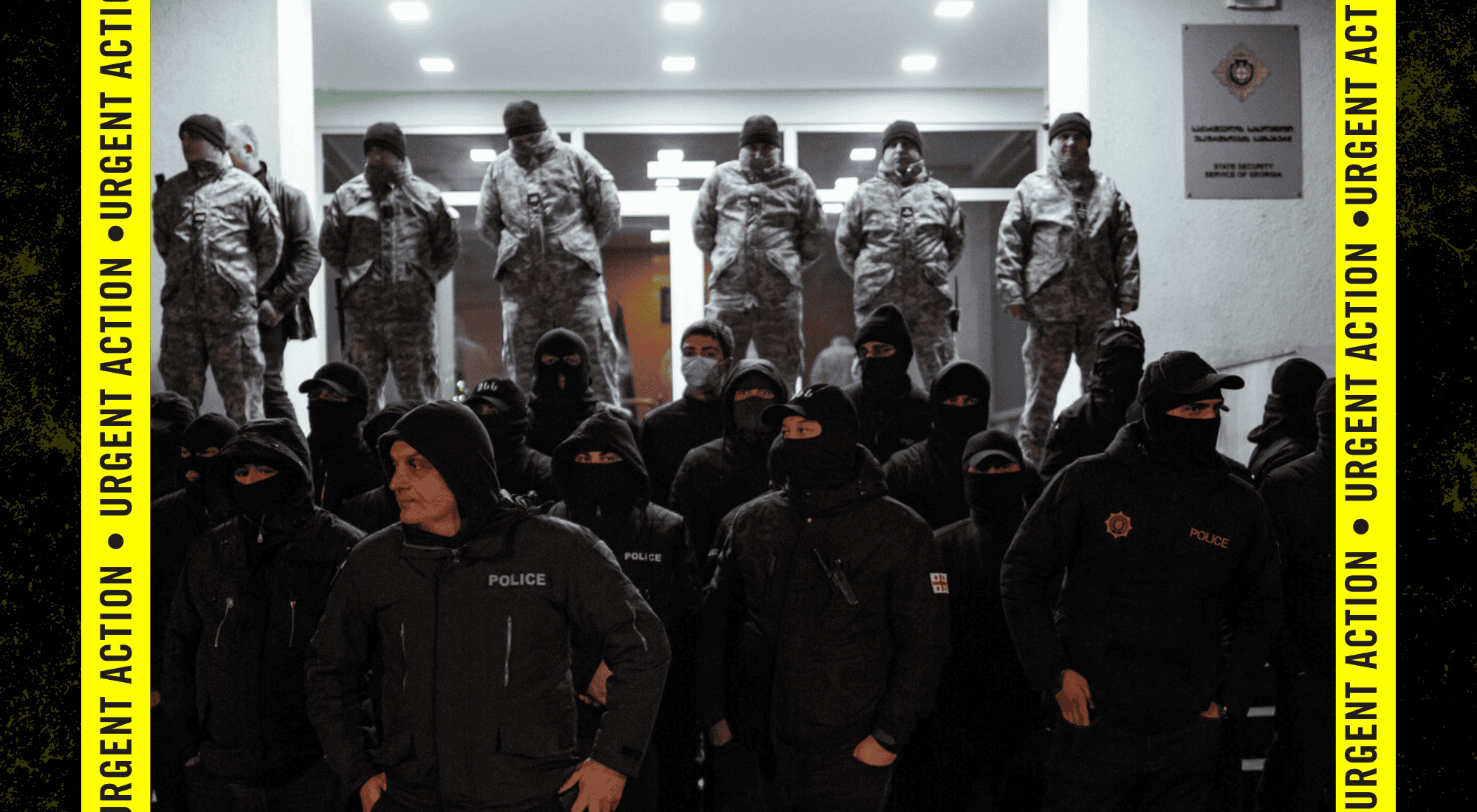In December 2024, Georgian actor Andro Chichinadze was arrested while joining pro-European protests. Authorities accused him of throwing an object at police and charged him, along with 10 others, with “group violence.”
Since then, their hearings and trial have been full of serious fair trial violations. The charges appear politically motivated.
Andro Chichinadze and his co-defendants must either receive a fair trial or be released immediately.
Here’s what you can do:
Write to the Georgian Prosecutor General urging him to:
- Review the legality of Andro Chichinadze’s detention, along with that of his 10 co-defendants.
- Ensure they receive a fair retrial or release them immediately.
- Launch a prompt and effective investigation into all reported human rights violations by police, including allegations of torture and other ill-treatment.
- End the misuse of Georgia’s criminal system to silence peaceful protest and dissent.
Write to:
Giorgi Gvarakidze
Prosecutor General of Georgia
24 Gorgasali Street, 0134 Tbilisi, Georgia
Email: mla@pog.gov.ge
Salutation: Dear Prosecutor General,
And copy:
Mr. Bakari Makaridze
Minister-Counsellor
Embassy of Georgia
340 Albert Street, 940
Ottawa, ON K1R 7Y6
Tel: (613) 421-0460 Fax: (613) 680-0394
Email: ottawa.emb@mfa.gov.ge
Targeting of public figures
Andro Chichinadze is a well-known actor in Georgia. He is also a strong critic of the government and took part in pro-European protests in November and December 2024. One of his co-defendants, comedian Onise Tskhadadze, is also a public figure.
While all 11 defendants have faced human rights violations, including breaches of their fair trial rights, Chichinadze and Tskhadadze appear to have been singled out for public attacks by government officials. Their visibility as protest leaders seems to have been used to intimidate others and create a chilling effect on dissent.

Unfounded charges
The 11 defendants are accused of “group violence” against police, a crime under Article 225 of Georgia’s Criminal Code, punishable by up to 10 years in prison. The prosecution claims they threw “objects” at police. However, it has not shown that these actions were premeditated, coordinated, or part of a larger plan — all required under the law’s definition.
There is no evidence that the alleged actions caused harm or damage. During the trial, prosecution witnesses, including police officers, could not identify Chichinadze or Tskhadadze as having committed any violent acts.
The other nine defendants are: Jano Archaia, Ruslan Sivakov, Luka Jabua, Guram Mirtskhulava, Valeri Tetrashvili, Giorgi Terishvili, Irakli Kerashvili, Revaz Kinadze, and Sergei Kukarchuk.
Crackdown on protests
Mass protests have taken place in Georgia for over a year. People mobilized against the Transparency of Foreign Influence Bill in April and May 2024, disputed election results in October, and the suspension of EU accession talks in November-December.
Police used unlawful force to disperse overwhelmingly peaceful protesters. This included arbitrary arrests, beatings, and other ill-treatment, leaving many injured. Hundreds of protesters were detained, some even tracked down at their homes and offices.
During the November-December protests alone, around 500 protesters were reportedly detained. Amnesty International has documented widespread torture and ill-treatment of detainees, politically motivated prosecutions, and gender-based reprisals, including violence against women protesters.
Please take action as soon as possible until February 21, 2026. The UA will be duly updated should there be the need for further action.
























